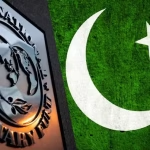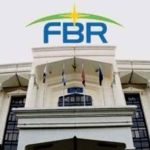The Taliban’s quick conquest of Afghanistan presents a new problem for large American internet companies in terms of dealing with information generated by a group that is designated a terrorist organisation by several countries across the world.
Facebook announced on Monday that it has designated the Taliban as a terrorist organisation and has banned them, as well as content promoting it, from its services.
Despite Facebook’s prohibition under its rules against violent organisations, Taliban militants are said to have continued to utilise the end-to-end encrypted messaging app WhatsApp to interact directly with Afghans.
A representative for Facebook Inc said the company was closely watching the situation in Afghanistan and that any accounts discovered to be related to sanctioned organisations in Afghanistan would face action, which may include account termination.
During the country’s takeover, Taliban spokesmen with hundreds of thousands of followers on Twitter Inc have issued updates.
When asked about the Taliban’s use of the site, the firm cited its prohibitions prohibiting violent organisations and hate speech, but did not respond to Reuters’ inquiries about how it classifies content. Twitter’s guidelines state that organisations that encourage terrorism or violence against civilians are not permitted to use the platform.
The Taliban’s return has sparked worries that it would repress freedom of expression and human rights, particularly women’s rights, and that the country will once again become a safe haven for international terrorists.
Officials from the Taliban have released comments expressing their desire for peaceful international ties and promising to safeguard Afghans.
This year, major social media companies made high-profile judgments about how to handle sitting world leaders and powerful groups.
These include contentious restrictions on former US President Donald Trump for inciting violence in the aftermath of the Jan. 6 Capitol riot and bans on Myanmar’s military in the aftermath of the country’s takeover.
The coup increased the danger of offline violence, according to Facebook, which has long been chastised for failing to tackle hate speech in Myanmar. Its history of human rights breaches also led to the ban on the governing military, or Tatmadaw.
Companies that have been chastised by worldwide politicians and regulators for their disproportionate political and economic power sometimes rely on state designations or formal international recognitions to decide who is permitted access to their facilities.
These also aid in determining who may be vetted, granted official state accounts, or given special consideration for breaching the rules owing to newsworthiness or public interest gaps.
The differing positions of the IT corporations, on the other hand, show that the approach is not consistent.
When asked if it had any limitations or bans on the Taliban, Alphabet Inc’s YouTube declined to answer, but said it relied on governments to define “Foreign Terrorist Organizations” (FTO) to guide the site’s enforcement of its policies against violent criminal groups.
YouTube linked to a list of Foreign Terrorist Organizations (FTOs) that the Taliban is not a part of. Instead, the United States designates the Taliban as a “Specially Designated Global Terrorist,” freezing their assets in the United States and prohibiting Americans from dealing with them.
Complicating matters even further, the Taliban’s standing on the international arena may alter as they consolidate authority, despite the fact that most nations have shown no evidence of diplomatic recognition.
“At an international level, the Taliban is somewhat of an acknowledged actor,” said Mohammed Sinan Siyech, a researcher on security in South Asia and PhD candidate at the University of Edinburgh, citing discussions between China and the US with the organisation.
“If that recognition comes in, then it becomes more difficult for a business like Twitter or Facebook to make a subjective judgement that this group is terrible and we will not host them.”









